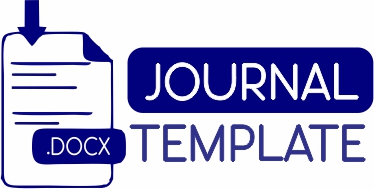KEBIJAKAN PEMANFAATAN ELECTRONIC TRAFFIC LAW ENFORCEMENT (ETLE) DI SATLANTAS SUKOHARJO
DOI:
https://doi.org/10.24269/ed.v7i1.1933Keywords:
Electronic Traffic Law Enforcement, electronic fines, traffic order, legal awareness, violationsAbstract
This study seeks to determine the policy regarding using Electronic Traffic Law Enforcement (ETLE) to maintain and enhance traffic orders. ETLE is based on Law (UU) Number 22 of 2009 concerning Road Traffic and Transportation and Government Regulation (PP) Number 80 of 2012 concerning Procedures for Inspecting Motorized Vehicles on the Road and Enforcement of Traffic and Road Transportation Violations. From October 2022 to February 2023, this research was conducted at the state police of the Republic of Indonesia in Central Java Resor Sukoharjo. To observe and comprehend the subjects and objects of study, the researcher employs a qualitative descriptive method based on observations made in the field. During and after data collection, data collection techniques, such as observation, interviews, and documentation, are combined with data analysis, which includes data reduction, data presentation, and conclusion or verification drawing. As evidenced by the recapitulation of 16,538 violation cases in Sukoharjo, the results demonstrated the public's need for more understanding regarding electronic fines and discipline in maintaining driving order must be improved. Additional socialization efforts are required to maintain traffic order and reduce instances of these violations. Replacing conventional ticketing with electronic ticketing, or ETLE, will result in more equitable, transparent, and efficient public services. To support security, order, safety, and order in traffic, the benefits can be felt by all levels of society simultaneously.
References
Ariefulloh, A., Asis, A., & Maskun, M. (2019). Dilema Penerapan Sanksi Pelanggaran Lalu Lintas Terhadap Anak. Jambura Law Review, 1(2). https://doi.org/10.33756/jalrev.v1i2.2077
Dewi, T. E. S. (2022). Tilang Manual Dihapus, Adaptasi Perubahan Sistem Elektronik. https://setkab.go.id/tilang-manual-dihapus-adaptasi-perubahan-sistem-elektronik/
Gultom, T. S., & Anda. (2012). Penegakan Hukum Tindak Pidana Pelanggaran Lalu Lintas.
Hadiluwih, S. (2006). UNDANG-UNDANG LALU-LINTAS SEBAGAI REGULASI TERTIB LANTAS KOTA MEDAN. Jurnal Equality, 11(2).
Hasmita. (2021). EFEKTIVITAS PENERAPAN SISTEM ELECTRONIC TRAFFIC LAW ENFORCEMENT (ETLE) MELALUI PENGAWASAN CCTV LALU LINTAS DALAM UPAYA PENERTIBAN PENGGUNA JALAN DI KOTA MAKASSAR. 7, 6.
M. Adam Samudra, F. (2021). Tenang, STNK Diblokir Karena Tak Bayar Denda Tilang Elektronik, Cara Urusnya Gampang. https://otomotifnet.gridoto.com/read/233040024/tenang-stnk-diblokir-karena-tak-bayar-denda-tilang-elektronik-cara-urusnya-gampang
Moleong. (2017). Metode Penelitian Kualitatif. Rosda Karya.
Sabadina, U. (2020). PENERAPAN E-TILANG DALAM PENYELESAIAN TINDAK PIDANA PELANGGARAN LALU LINTAS. Indonesian Journal of Criminal Law and Criminology (IJCLC), 1(1). https://doi.org/10.18196/ijclc.v1i1.9157
Sadono, S. (2016). Budaya Tertib Berlalu-Lintas “Kajian Fenomenologis Atas Masyarakat Pengendara Sepeda Motor Di Kota Bandung.†CHANNEL: Jurnal Komunikasi, 4(1), 1576–1580. https://doi.org/10.12928/channel.v4i1.4207
Saputra, P. N. (2021). Electronic Traffic Law Enforcement (ETLE) Dan Permasalahannya. Jurnal Info Singkat, 13(7), 1–6. http://berkas.dpr.go.id/
Subronto, T. (2021). Tidak Bayar E-Tilang, Siap-siap STNK Diblokir Polisi.
Wijayanti, I. (2020). Pemerintahan Berbasis Elektronik dalam Pelayanan Publik. https://www.ombudsman.go.id/artikel/r/artikel--pemerintahan-berbasis-elektronik-dalam-pelayanan-publik
Yuliantoro, Y., & Sulchan, A. (2021). The Effectiveness against Traffic Violations with Electronic Traffic Law Enforcement (ETLE). Law Development Journal, 3(4). https://doi.org/10.30659/ldj.3.4.736-742
Downloads
Published
How to Cite
Issue
Section
License
Authors who publish their manuscripts in this journal agree to the following terms:
- The copyright on each article belongs to the author.
- The author acknowledges that Edupedia Journal has the right to be the first to publish under a Creative Commons Attribution 4.0 International (Attribution 4.0 International CC BY 4.0) license.
- Authors may submit articles separately, arranging for the non-exclusive distribution of manuscripts that have been published in this journal to other versions (e.g., sent to the author's institutional repository, publication into books, etc.), acknowledging that the manuscript was first published in the Journal. Edupedia.






